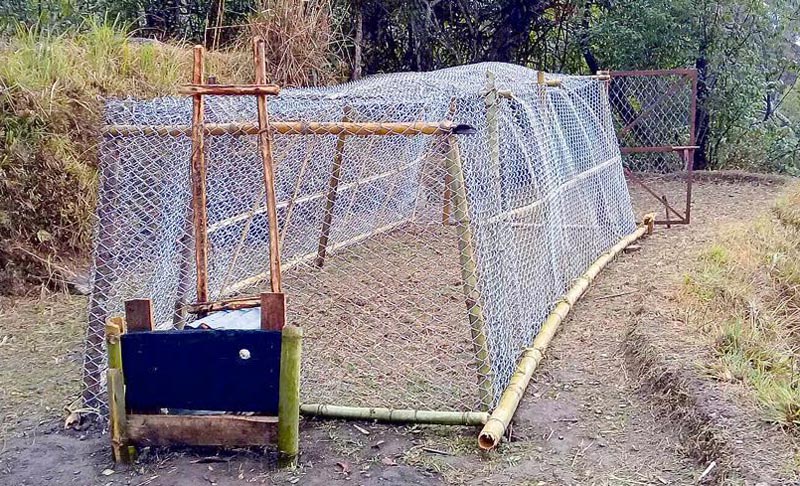Farmers complain of monkey terror
Pokhara, August 28
Monkey terror has gripped farmers across Gandaki province and many farmers have been injured in their bid to protect crops from monkeys.
Twenty-year-old Sudarshan Poudel of Baglung’s Kundule lost his life when he fell off a cliff while trying to protect his crops from monkeys on July 14. In another incident, a woman of Kaskikot in Kaski district was attacked by a monkey, and as a result, she went mad. In Kaski alone, over 10 persons have been injured in monkey attacks.
“Besides destroying our crops almost every year, the monkeys have started attacking us,” said farmer Chintamani Bhattarai, a farmer of Kaskikot.
Pokhara metropolis Ward No 21 Agriculture Network Coordinator Umanath Subedi lamented lack of support from the authorities concerned in curbing monkey terror.
“Monkeys have destroyed crops, vegetables and oranges in Kristi Nachnechaur. Though monkey terror has been on the rise for the past few years, there has been no attempt to control it,” he said.
Monkeys have also affected research work at the Agriculture Research Centre based in Lumle.
“Every year, the centre conducts research on dozens of crop seeds, but research has been disturbed by the monkeys from the nearby forest,” said Sandeep Timilsina, a technician at the centre.
According to Pokhara metropolis Ward No 22 Agriculture Network Coordinator Khemraj Baral, monkey terror has dampened the spirit of people who have been trying their luck in agriculture following their return from foreign employment.
“The government has provided subsidy in agriculture, but monkey terror has been a big threat for those wishing to work in the sector of agriculture,” he said.
Pumdibhumdi is a hub for vegetable production in Kaski, but according to local farmers, vegetable farming in the region has declined lately because of monkey threat.
Wildlife Conservation Campaigner Raju Acharya attributed the problem the farmers are facing from monkeys to the increase in the population of monkeys. “Decline in the population of leopard has contributed to growth in the population of monkeys. The monkey is a favourite prey of leopards.
Since there are few leopards in the jungle, population of monkeys has grown,” he said.
Meanwhile, a few local bodies in the province have even set aside some budget to control monkeys.
According to Rupa Rural Municipality Chairperson Nawaraj Ojha, his municipality had to hire a man from India to catch monkeys. “This year alone, we caught some 525 monkeys with the help of the man and relocated them in the nearby forest,” he said.
Similarly, Mahashila Rural Municipality of Parbat spent some 1.2 million rupees to control monkeys.
It caught some 330 monkeys and relocated them to a faraway forest.
Expert on monkeys Dr Mukesh Kumar Chalise suggested that a suitable and scientific measure could be adopted to control monkey terror.
“The measure of relocating monkeys to forests might aggravate the problem. Instead, we should adopt other measures such as sterilization of monkeys, using them for research or making small zoos for keeping them,” he suggested.
Gandaki Province Livestock and Fish Directorate Director Dr Man Bahadur Pun said that cost of sterilization of a monkey stood at around Rs 5,000. “We first need to catch them, sedate them and carry out sterilization before releasing them in the forest,” he said.
It is important to note that, Thakur Prasad Subedi of Kristi Nachnechaur in Ward No 21 of Pokhara metropolis had filed a writ at the Supreme Court for the control of monkeys about three years ago.






